Your basket is currently empty!
Written by
What Causes Low Boiler Pressure & How To Fix It

How to fix boiler losing pressure – Low boiler pressure

Is your boiler losing pressure? Leaks and other boiler issues can cause a boiler to lose pressure over time, which can result in no hot water or central heating. Determining when a boiler has lost pressure and how to fix it is crucial for homeowners.
Your central heating system cannot force the hot water where you need it to be if the pipes do not contain the proper proportion of water and air.
Get boiler quotes online in 20 seconds – Click here

When a boiler keeps losing pressure, a home repair might be the answer, but it’s more likely that you’ll need the help of a licenced heating engineer.
This can be done when you complete your annual servicing of your boiler, like our one off gas boiler service options, as they will check the pressure of your boiler.
A boiler can lose pressure for a variety of reasons, but leaks are frequently one of them. We’ll look more closely at what that leak means for the boiler pressure in this manual and how to fix it.
We’ll also look at some additional causes of the low-pressure problems and how it can even mean that you have hot water but no central heating when this happens.
Get your Fixed Price Boiler Quotes Online
New Gas Boilers with £0 Deposit & 0% Interest Finance Availble
Get the best quotes for boiler installation online in under 1 minute now
Low Boiler Pressure Explained
Pressure in a boiler relates to how much water is in the central heating system, and this pressure ensures that hot water is transferred efficiently around the radiators in your home.
Gas boilers are made to function within a specific pressure range in the central heating system which is usually 1.5 bar. By consulting the manual or the manufacturer’s website, you can determine the boiler’s ideal operating range for your particular model.
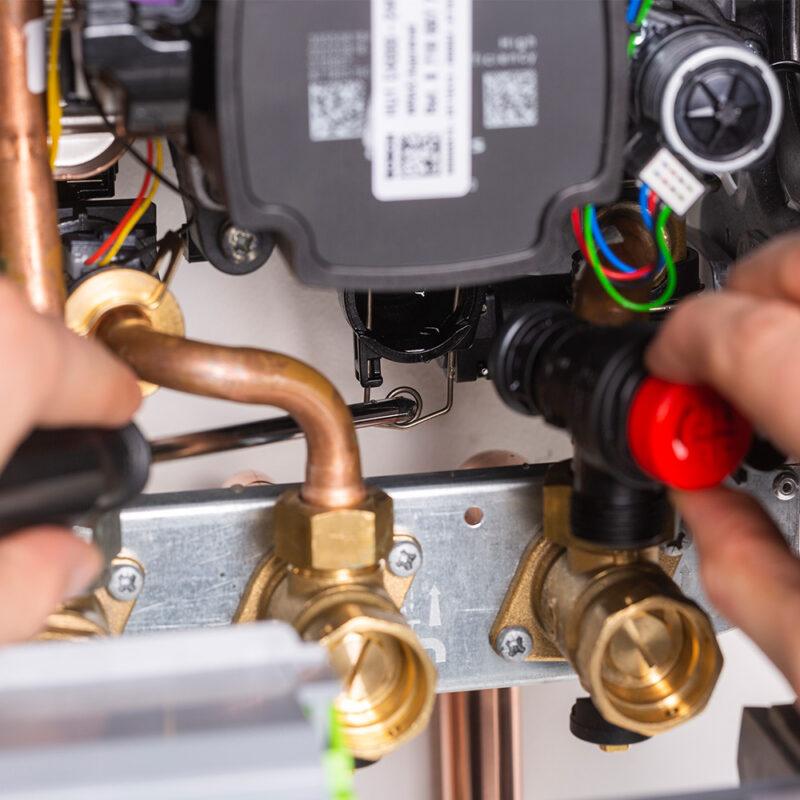
The first thing that will happen when the boiler pressure drops below the required level is that efficiency will suffer.
This is a result of your boiler working harder to move the hot water to its intended location. However if your boiler drops below a dangerous level, you will end up with no hot water coming from your boiler at all.
How to check the boiler pressure gauge
Check the pressure gauge, which is usually found on the front of your boiler, to see if your boiler pressure is too low. To show you the current boiler pressure, this gauge may be a dial with green and red zones.
A screen that displays an error code may be present on a modern best combi boiler to alert you to a problem. You can then determine if the error code is related to a boiler pressure problem by quickly consulting the manual.

Boilers require a system pressure that is typically between 0.7 bar and 2.5 bar in order to operate safely and most effectively. Normal pressure fluctuations can frequently be resolved by topping off the water levels to raise the pressure.
However, if the boiler is consistently losing pressure, it means that a larger issue—such as a water leak—needs to be found and fixed.
Get your Fixed Price Boiler Quotes Online
New Gas Boilers with £0 Deposit & 0% Interest Finance Availble
Get the best quotes for boiler installation online in under 1 minute now
How can I tell if the pressure in my boiler is low?
Check what it should be first if there are any indications that your boiler has lost pressure. That information is contained in the boiler manual.
The pressure gauge, which is located on the boiler’s front panel, can then be checked. You can use that to determine whether the pressure is low, high, or set properly.
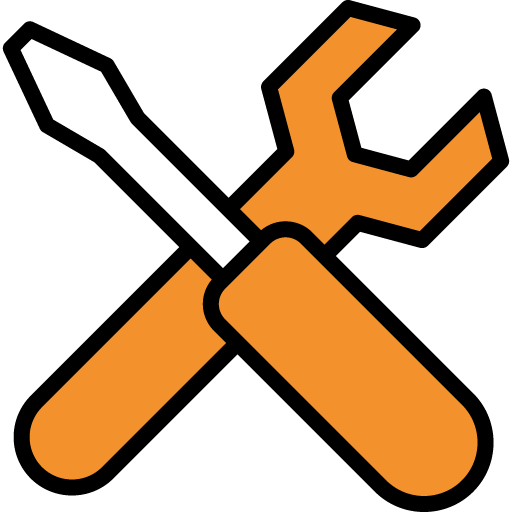
On their more contemporary boiler lines, the majority of boiler manufacturers now include a control panel. A screen will then appear as a result, showing an error code. The meaning of the error code can then be determined by consulting the boiler’s manual.
Bars are used to measure pressure, and if your boiler’s required pressure is lower than the required minimum, it has lost pressure. The pressure bar has exceeded the level required for your boiler to operate normally if it is deemed to be too high. The connected radiators can then be bled to solve this.
A built-in safety feature of boilers prevents your system from ever being in a dangerous state by automatically reducing pressure. However, until a gas safe engineer can arrive and evaluate the situation, bleeding the radiators will help the situation.
Unreliable Pressure Gauge
It’s important to keep in mind the possibility that your gauge is faulty. It’s possible that the gauge is inaccurate because the boiler pressure is actually perfect.
If your boiler displays fault codes on the screen, we advise looking at them to see if they still indicate that your boiler is losing pressure.
Get your Fixed Price Boiler Quotes Online
New Gas Boilers with £0 Deposit & 0% Interest Finance Availble
Get the best quotes for boiler installation online in under 1 minute now
How do I top up my boiler pressure?
Step-by-step guide to topping up boiler pressure
- The first thing to do is ensure that your boiler has cooled down, this will ensure that you get the right pressure in your system.
- To top up your boiler pressure you will need to locate your boiler filling loop.
- There are several different types of filling loops, there are conventional ones, fixed filling loops and now quick fill or automatic filling systems.
- Once you have found the filling loop which is usually underneath your boiler you will need to use the taps or levers to enable water to enter the central heating system.
- This added water will create the desired pressure in the system, and you should keep an eye on the pressure gauge at the same time. You need to ensure that the needle on the pressure gauge is between 1.5 bar and 2 bar.
- Once you have let enough water into your boiler system, you will need to shut off the taps or levers on the filling loop to stop the flow of water.
- You can then reset the boiler if required and start it up. If there are no issues with your boiler the pressure should not drop too much, if at all.
- If the boiler pressure is too high then you will need to release some of this pressure by bleeding the radiators. If your central heating system is full, you will need to let some water out whilst bleeding too.
- Run your boiler to see what happens and keep an eye on the pressure gauge for the next few days. If it drops slightly again, you can repeat the process.
- If your boiler is dropping rapidly or continuously over a longer period then we strongly suggest getting it looked at by a Gas Safe registered heating engineer.
How to fix a boiler losing pressure?
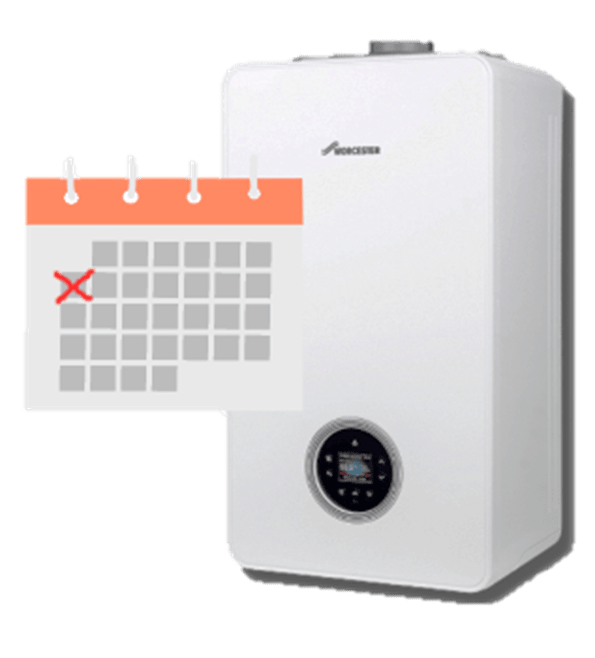
If your boiler is continuously or rapidly losing pressure and you don’t have a leak, then you need to contact a professional.
You shouldn’t fix a boiler losing pressure yourself, you should let a gas-safe engineer do all the hassle. As they are the legally qualified experts to deal with your boiler, quite possibly unlike you.
So getting a boiler annually serviced by these experts, can instantly help you find out what’s wrong and it makes it easier to fix your boiler.
Get your Fixed Price Boiler Quotes Online
New Gas Boilers with £0 Deposit & 0% Interest Finance Availble
Get the best quotes for boiler installation online in under 1 minute now
Why is my boiler losing pressure?
Leaks are the most frequent cause of why a boiler pressure keeps dropping, as we’ve already mentioned, but there are other potential causes as well.
Boiler leak

The mechanical components in your boiler are constantly working hard to meet your hot water needs and it is not uncommon to have a boiler leaking in older units. It also implies that there are weak points that can deteriorate with use and time. These components include the diverter valve, washers, ring joints, and automatic air vent.
Boiler leak indicators
Usually, it’s simple to identify this one. This is due to the fact that you will notice water dripping from the bottom of the boiler if the leak is larger.
If the leak is small and the water is dripping internally before you notice the problem, it might not be so obvious.
Boiler leak solution
Most boiler leaks cannot be repaired by a homeowner. This is so that a gas safe engineer can perform the necessary repair, which will require removing the boiler casing.
In the UK especially London, there are strict regulations governing who can install and maintain gas appliances. This implies that you must be registered on the official register of qualified professionals and possess the Gas Safe certification. If you attempt to fix a gas boiler, you risk being charged and having your boiler’s warranty revoked.
The cost of repairs will vary depending on which component has been harmed. Ask the engineer if he or she offers fixed prices for fixes to common problems so you will know exactly how much it will cost.
It might be time for a new boiler if your old one is starting to malfunction. Remember that a new boiler is probably going to provide you with much higher levels of efficiency, which translates to lower energy bills.
Leak in the central heating system
A leak in the heating system itself can result in pressure drops in addition to leaks in the boiler. This can include items like towel rails and radiator valves in addition to the pipework.
Signs of a leak in the central heating system
You need to conduct some research to determine if this might be the root of the problem. In order to find any water leaking from the entire system, start at the boiler and follow the pipes. As these are going to be weak points and are therefore most prone to leaks, pay close attention to the joints and bends as well as each radiator valve.
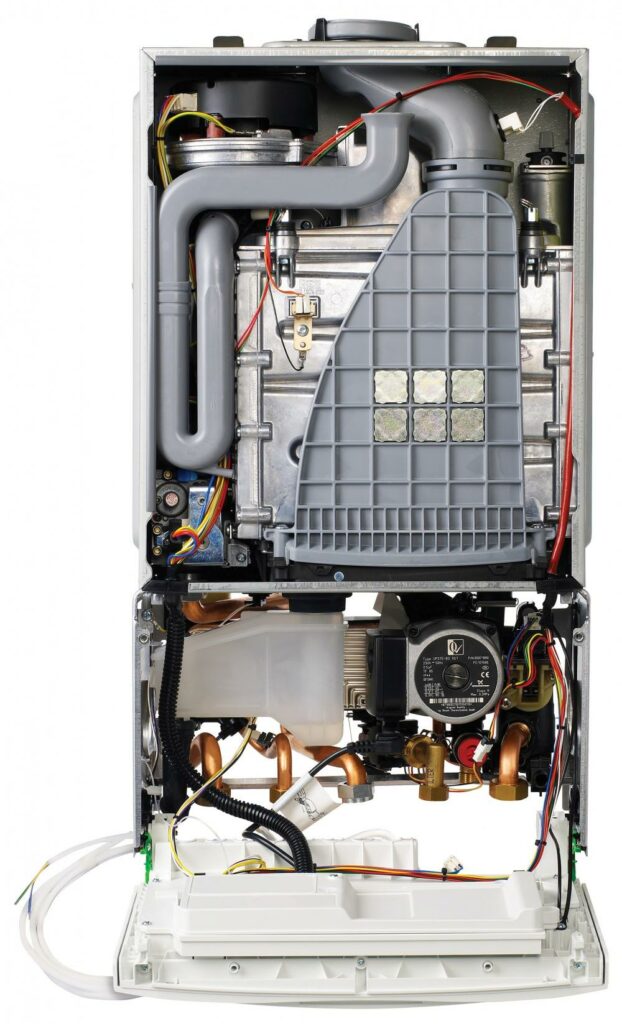
To pinpoint the exact location of the leaking pipe, keep an eye out for damp patches on the floor.
Central heating system leak solution
The isolation valves can be used to stop any additional leaks once you’ve located the source of the water leak. There will be no heating, though. For the majority of people, fixing leaks in the heating piping is a job best left to a boiler engineer.
Bleeding radiators
The cause of the boiler pressure loss may be related to recent radiator bleeding. Now if you haven’t bled the radiators recently, keep checking down our list for other reasons that your boiler is losing pressure.
Bleeding radiators solution
Bleeding radiators is common, so tt’s simple to fix this one! Therefore, repressurising the boiler is all that is required to resolve low boiler pressure brought on by recently bled radiators.
To accomplish this, you must locate the filling loop. It is a built-in copper pipe with two taps in the majority of contemporary combi boilers. You might need to attach a filling loop to the boiler pipework if the boiler is an older mo
Open the first mains water-connected tap after installing the filling loop. Open the second tap while keeping an eye on the pressure gauge. The water pressure will now start to increase, but wait until it reaches 1.0 to 2.0 bars. When you get there, close the faucets, and your boiler ought to be operating at the proper pressure.
Faulty expansion vessel
When your boiler’s expansion vessel is malfunctioning, you can experience high pressure up to 3 bars. Because the expanding water has nowhere to go, the pressure rises as a result.
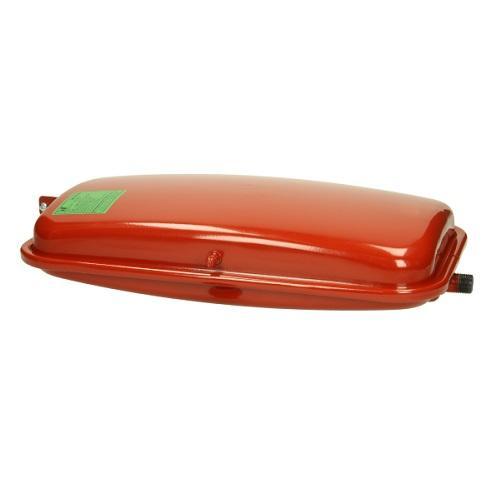
Then, all of that excess pressure must be released by the pressure relief valve. The pressure gauge reading will consequently experience a sharp decline. Check in the user manual first as the majority of boilers now have a specific fault code for a malfunctioning expansion vessel.
Faulty expansion vessel solution
An expansion vessel that has been damaged can typically be repaired or replaced. Therefore, you will need a gas safe engineer to finish the repair. Dramatic pressure changes will no longer occur once the expansion tank issue is resolved and the boiler is able to operate properly.
A heating repair engineer may perform this repair as part of a fixed-price quotation service. This does of course assume that this is the issue and they don’t find any other problems that need fixing.
Get your Fixed Price Boiler Quotes Online
New Gas Boilers with £0 Deposit & 0% Interest Finance Availble
Get the best quotes for boiler installation online in under 1 minute now
Damaged pressure release valve in the heating system
A pressure relief valve does what it says on the tin—it releases excess pressure. Once the boiler pressure reaches over three bars, they are typically activated.
A damaged pressure relief valve will begin to leak water away from the central heating system at a lower pressure, typically into a pipe outside the house.
How to fix a broken pressure release valve
This issue can only be solved by replacing the damaged boiler component. Once more, you’ll probably need to call in a heating engineer to fix the pressure loss problem for you.
Faulty boiler parts
We’ve already mentioned a few boiler components that can lead to pressure loss issues, but there are many more that can have a similar effect. So your combi boiler may still be losing pressure due to a mechanical problem and you will find you boiler is not working properly.
Solution:
The first thing to do is to see if the boiler display panel is showing any fault codes. The engineer and you will both learn exactly what’s causing the issue from this. To identify the component causing low boiler pressure, just compare the fault code to those detailed in the boiler manual.
Trapped air
Recall how we said your boiler system required the proper balance of air and water to function properly? Well, occasionally air can build up in the towel rails and radiators, which leads to an airlock that prevents the hot water from flowing.
Using a bleed key, which removes the extra air, can solve this issue.
How to bleed radiators and towel rails
Try bleeding your radiators before you take any more action. However, a good tip is to have a towel or rag ready to catch any drops from the radiator air vent before you get started because the water from the heating system might be dark in colour and stain everything it falls upon.
If the heating system contains air
- Use a radiator key to bleed your radiators – to ensure a generous hot radiator.
- Locate the radiator air vent and slowly turn the radiator key counterclockwise until water begins to trickle out – this will release the trapped air and allow hot water to fill that vacuum or space in the radiator once more.
- Always bleed the radiators on the top floor first, and bleed the radiators in order.
- Once all of the radiators have been bled of air, the pressure will drop again, so check it again and make the necessary adjustments.
Use caution when using the bleed key because depending on whether your heating has been on, the water that comes out of the radiator may be cold or extremely hot.
If flushing out the heating system is necessary, you may need to do so if bleeding the radiators doesn’t resolve the problem. A bigger problem could be an airlock in the heating system. If you don’t feel entirely at ease and don’t have the necessary skills and equipment, I wouldn’t advise doing this yourself. In light of this, most individuals should now consult a plumber.
Does your central heating system have a leak?
A leak in your central heating system could be the cause of your boiler losing pressure, so keep an eye out for any indicators of a leak such as a damp floor, leaky pipes, a small hole in a radiator, or a stain on your ceiling.
It can sometimes feel like locating a needle in a haystack, but before calling a plumber, it’s worth trying to identify the leak on your own central heating system. Heating engineers typically charge by the hour, which can get very expensive.
Is the pressure release valve for the boiler leaking?
Is there a constant drop of water coming from the boiler’s pressure release valve pipe? If so, the valve has certainly been opened at some point, and there may be some inside debris preventing a proper shutoff. This defective pressure relief valve may only require cleaning, which is a relatively inexpensive fix, or it may require replacement entirely. Really, this task should be left to a licenced plumber or heating engineer.
Faulty boiler expansion vessel
Any expansion that is produced when water is heated up in the heating system is accommodated by an expansion vessel that is either installed inside or outside of the boiler in all modern sealed system boilers or pressurised boiler systems.
If the expansion vessel is malfunctioning, the heating system’s pressure will rise quickly as a result of the expanding hot water, and once the pressure exceeds 3 bar, the water will be ejected through the pressure relief valve.
The internal bladder of the expansion vessel, which is often made of neoprene rubber (which resists deterioration better than natural or synthetic rubber), must be inflated with air or, ideally, nitrogen ( when the gas side is filled with nitrogen, and not with air, corrosion is prevented and the pressure loss is even more limited).
This level of nitrogen or air, also known as its charge, must be maintained by yearly boiler maintenance; otherwise, it will eventually dissipate completely, resulting in ongoing low-pressure issues with the boiler and eventual failure of the central heating system.
Get your Fixed Price Boiler Quotes Online
New Gas Boilers with £0 Deposit & 0% Interest Finance Availble
Get the best quotes for boiler installation online in under 1 minute now
Fault codes for a boiler losing pressure
A fault or error code is now widely used by boiler manufacturers to inform you when something is causing the boiler to lose pressure. So, a combi boiler bursting a leak or an increase in air in the radiators could be the cause of the problem.
You can determine the possible cause of your broken boiler and that pressure loss by comparing the code to the boiler issues listed in the manual. In some cases, you might then be able to resolve the problem on your own or at the very least be able to give the heating engineer more details.
Remember that codes can vary between different boiler models and that each manufacturer has their own list of codes.
Viessman boiler error codes
C1 = Differential air pressure.
B9, ED, F0, F-E5, F-EC, F-ED, F-EE, F-EF, F-FD, F-FF: Issue with the maximum pressure limiter
F5: The gas pressure switch is faulty
EE and EF = Issues with the air pressure switch
0F = The boiler needs servicing
Alpha boiler error codes
1: Failure of the ignition system
2: Primary system low-pressure problems
61: System pressure is incorrect, may be caused by air in the pump
0A37: More pressure needed, the boiler is switched off into standby mode
0E37 – System pressure too low
Worcester boiler error codes
E9: Problems with the safety limiter.
A1: A dry pump
F0: Internal error
CE 207: Water pressure too low
H07: Reduced performance due to low pressure
1065 B: Faulty pressure sensor
1970 B: Boiler losing pressure rapidly
Is low boiler pressure dangerous?
A boiler losing pressure is typically not dangerous, unlike high pressure. However, if a boiler consistently loses pressure, water is probably leaving the system in some way, and this could be happening right in your house.
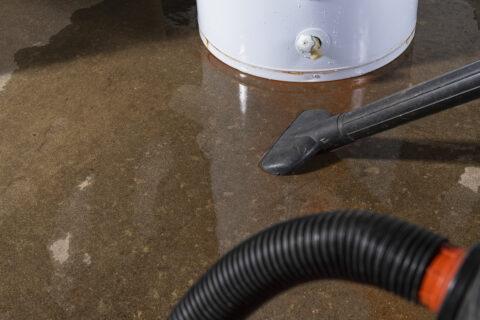
This implies that a water leak may be damaging your carpets and seeping into your flooring. But more concerningly, it might also be gaining access to electrical devices, which could be extremely dangerous.
When the pressure in your boiler starts to drop, the issue won’t go away. In fact, there is a good chance that it will only get worse with time. This implies that as your boiler loses pressure, you will eventually stop receiving hot water and central heating.
Additionally, keep in mind that as the pressure in your boiler decreases, you are also losing money. This is due to the fact that your boiler’s efficiency will drastically decline and your costs will soar.
Is your pressure dropping on your boiler every day?
First, don’t panic if your boiler starts to lose pressure every day. This is a frequent problem, and the most likely cause is a minor leak that is simple to correct.
However, it might also be a sign of something more serious, so it’s critical to identify the problem and take prompt action to address it.
Get your Fixed Price Boiler Quotes Online
New Gas Boilers with £0 Deposit & 0% Interest Finance Availble
Get the best quotes for boiler installation online in under 1 minute now
Boiler replacement or repair?
Problems with boiler pressure can frequently be fixed quickly and occasionally without contacting an engineer. However, a new boiler might be the best choice if your boiler is continuously losing pressure and you are without hot water or central heating.
With a new boiler, you might finally be able to stop worrying and stressing about boiler pressure problems and know that you have a dependable source of heat.
Get your Fixed Price Boiler Quotes Online
New Gas Boilers with £0 Deposit & 0% Interest Finance Availble
Get the best quotes for boiler installation online in under 1 minute now
Written by
Get your Fixed Price Boiler Quotes Online
New Gas Boilers with £0 Deposit & 0% Interest Finance Availble
Get the best quotes for boiler installation online in under 1 minute now
What is in this article?
- How to fix boiler losing pressure – Low boiler pressure
- Low Boiler Pressure Explained
- How to check the boiler pressure gauge
- How can I tell if the pressure in my boiler is low?
- How to fix a boiler losing pressure?
- Why is my boiler losing pressure?
- Fault codes for a boiler losing pressure
- Is low boiler pressure dangerous?





